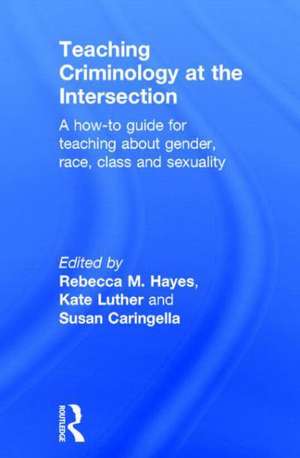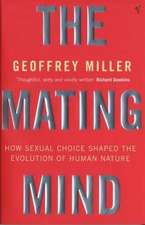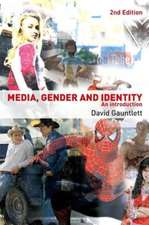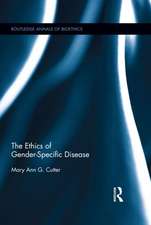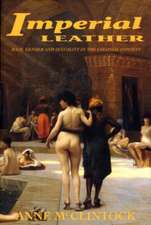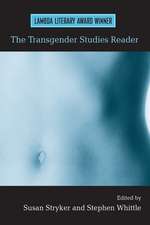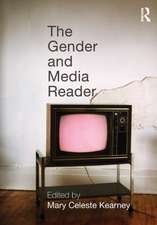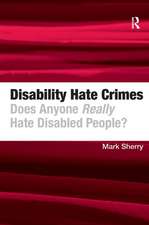Teaching Criminology at the Intersection: A how-to guide for teaching about gender, race, class and sexuality
Editat de Rebecca Hayes, Kate Luther, Susan Caringellaen Limba Engleză Hardback – 19 aug 2014
Bringing together the experience and knowledge of expert scholars, this book provides time-strapped academics with an accessible how-to guide for the classroom, where the dynamics and discrimination of gender, race, class and sexuality demographics intersect and permeate criminal justice concerns. In the book, the authors of each chapter discuss how they teach a particular contemporary criminal justice issue and provide their suggestions for best practice, while grounding their ideas in pedagogical theory. Chapters end with a toolkit of recommended activities, assignments, films, readings or websites.
As a teaching handbook, Teaching Criminology at the Intersection is appropriate reading for graduate level criminology, criminal justice and women’s and gender studies teaching instruction courses and as background reading and reference for instructors in these disciplines.
| Toate formatele și edițiile | Preț | Express |
|---|---|---|
| Paperback (1) | 357.22 lei 6-8 săpt. | |
| Taylor & Francis – 8 aug 2014 | 357.22 lei 6-8 săpt. | |
| Hardback (1) | 760.54 lei 6-8 săpt. | |
| Taylor & Francis – 19 aug 2014 | 760.54 lei 6-8 săpt. |
Preț: 760.54 lei
Preț vechi: 1025.26 lei
-26% Nou
Puncte Express: 1141
Preț estimativ în valută:
145.54€ • 151.09$ • 121.36£
145.54€ • 151.09$ • 121.36£
Carte tipărită la comandă
Livrare economică 22 martie-05 aprilie
Preluare comenzi: 021 569.72.76
Specificații
ISBN-13: 9780415856379
ISBN-10: 041585637X
Pagini: 160
Dimensiuni: 129 x 198 x 15 mm
Greutate: 0.25 kg
Ediția:New.
Editura: Taylor & Francis
Colecția Routledge
Locul publicării:Oxford, United Kingdom
ISBN-10: 041585637X
Pagini: 160
Dimensiuni: 129 x 198 x 15 mm
Greutate: 0.25 kg
Ediția:New.
Editura: Taylor & Francis
Colecția Routledge
Locul publicării:Oxford, United Kingdom
Public țintă
Postgraduate and UndergraduateCuprins
Introduction, Rebecca Hayes and Kate Luther 1. The social construction of a monster: a lesson from a lecture on race, Paul Hernandez and Toby A. Ten Eyck 2. Research on teaching sensitive topics: a review of the challenges and opportunities for enhancing the classroom experience, Kathryn A. Branch and Tara N. Richards 3. Self-reflection in motion: the victimology classroom, Helen Jones 4. Still at the periphery: race, ethnicity, crime and justice, Helen Taylor Greene 5. The invisible minority: making the LGBT community visible in the criminal justice classroom, Emily Lenning 6. Filling the void: classroom strategies for teaching about crimes of the powerful, Elizabeth A. Bradshaw 7. Women are more than victims: gender, crime, and the criminal justice system, Walter S. DeKeseredy Conclusion.
Notă biografică
Rebecca M. Hayes is an Associate Professor in the Department of Sociology, Anthropology and Social Work at Central Michigan University. Driven by her passion for social justice, particularly eradicating violence against women, she assisted with starting the first rape recovery non-profit organization in St. Lucia called PROSAF-Surviving Sexual Abuse in the Caribbean. You can find her scholarly work published in academic journal such as Feminist Criminology, Violence Against Women, Crime & Delinquency, and Critical Criminology. In 2013 she was awarded the Central Michigan Vice Provost Award, the American Society of Criminology's Division on Women and Crime New Scholar Award, and the American Society of Criminology’s Division of Victimology Practitioner/Activist of the Year Award.
Kate Luther is an Assistant Professor of Sociology at Pacific Lutheran University. Her areas of interest include gendered violence, women’s incarceration and the impact of incarceration on families. Her current research examines the pathways to college for children of incarcerated parents. She serves as the co-chair for the Division on Women and Crime’s Committee for Teaching and Pedagogy.
Professor Susan Caringella is an internationally known expert on rape, feminism and criminology. She has published extensively in academic books and journals on topics ranging from rape to violence against women, legislative change, sociological theory, political ideology and public opinion. Her acclaimed book "Reforming Rape Reforms in Law and Practice" (2009, Columbia University Press) has been nominated for awards in the American Society of Criminology and the Society for the Study of Social Problems. Professor Caringella's body of scholarship has been widely cited and recognized with national, state, and university scholarship awards and honors.
Kate Luther is an Assistant Professor of Sociology at Pacific Lutheran University. Her areas of interest include gendered violence, women’s incarceration and the impact of incarceration on families. Her current research examines the pathways to college for children of incarcerated parents. She serves as the co-chair for the Division on Women and Crime’s Committee for Teaching and Pedagogy.
Professor Susan Caringella is an internationally known expert on rape, feminism and criminology. She has published extensively in academic books and journals on topics ranging from rape to violence against women, legislative change, sociological theory, political ideology and public opinion. Her acclaimed book "Reforming Rape Reforms in Law and Practice" (2009, Columbia University Press) has been nominated for awards in the American Society of Criminology and the Society for the Study of Social Problems. Professor Caringella's body of scholarship has been widely cited and recognized with national, state, and university scholarship awards and honors.
Recenzii
‘Teaching Criminology at the Intersection is something every faculty member needs who is struggling with how to address issues of inequality and discrimination to resistant or simply unknowledgeable students. The contributors use various techniques, such as drawing an analogy between inaccurate perceptions of American Pit Bull Terriers and racist beliefs about people of color, effective use of assignments and outside speakers, and classroom exercises to impart knowledge in a non-threatening and often experiential manner.
In her groundbreaking chapter, Emily Lenning introduces students to the experiences of LGBTQ persons by having them imagine being heterosexual in a homosexist world. This book should be on the shelf of everyone who cares about teaching.’
Susan F. Sharp, David Ross Boyd Professor/Presidential Professor, University of Oklahoma, USA
‘It is vitally important that instructors teaching criminal justice broach the topic of diversity and its relationship to crime and criminal justice issues; however, incorporating material on race, ethnicity, gender, class, and sexual orientation can be a daunting task. Some of the most important topics to cover are the most sensitive, and instructors risk alienating students if the material is not approached carefully. This important book provides instructors with tools to tackle difficult issues and adequately address how diversity shapes human behavior, and encourages students to self-reflect on their own behavior and experiences.’
Christina DeJong, Director, Center for Integrative Studies in Social Science and Associate Professor, School of Criminal Justice, Michigan State University, USA
‘In their scrupulous consideration of the compelling effects of gender, race, class, and sexuality within criminology, the contributors of this volume have identified a missing link in the instruction of criminological courses.
This volume provides concrete illustrations for criminology educators to follow and promotes creative formulation of sound methods for educating from a critical and inclusivity standpoint. This volume is a necessity in every criminologist’s teaching toolbox.’
Hillary Potter, Associate Professor, Department of Ethnic Studies, University of Colorado at Boulder, USA
In her groundbreaking chapter, Emily Lenning introduces students to the experiences of LGBTQ persons by having them imagine being heterosexual in a homosexist world. This book should be on the shelf of everyone who cares about teaching.’
Susan F. Sharp, David Ross Boyd Professor/Presidential Professor, University of Oklahoma, USA
‘It is vitally important that instructors teaching criminal justice broach the topic of diversity and its relationship to crime and criminal justice issues; however, incorporating material on race, ethnicity, gender, class, and sexual orientation can be a daunting task. Some of the most important topics to cover are the most sensitive, and instructors risk alienating students if the material is not approached carefully. This important book provides instructors with tools to tackle difficult issues and adequately address how diversity shapes human behavior, and encourages students to self-reflect on their own behavior and experiences.’
Christina DeJong, Director, Center for Integrative Studies in Social Science and Associate Professor, School of Criminal Justice, Michigan State University, USA
‘In their scrupulous consideration of the compelling effects of gender, race, class, and sexuality within criminology, the contributors of this volume have identified a missing link in the instruction of criminological courses.
This volume provides concrete illustrations for criminology educators to follow and promotes creative formulation of sound methods for educating from a critical and inclusivity standpoint. This volume is a necessity in every criminologist’s teaching toolbox.’
Hillary Potter, Associate Professor, Department of Ethnic Studies, University of Colorado at Boulder, USA
Descriere
Teaching about gender, race, social class and sexuality in criminal justice and criminology classrooms can be challenging. Bringing together the experience and knowledge of expert scholars, this book provides time-strapped academics with an accessible how-to guide for the classroom, where the dynamics and discrimination of gender, race, class and sexuality demographics intersect and permeate criminal justice concerns.
